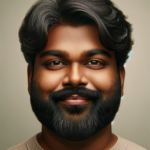Physicists led by Professor Norman Yao at Harvard University have developed a groundbreaking system that could overcome a key obstacle in advancing a new generation of supercomputers. Their research focuses on addressing a central challenge in quantum computing known as quantum decoherence; the process by which fragile quantum information is lost due to environmental noise and errors.
Bluvstein, D., Geim, A. A., Li, S. H., Evered, S. J., Bonilla Ataides, J. P., Baranes, G., Gu, A., Manovitz, T., Xu, M., Kalinowski, M., Majidy, S., Kokail, C., Maskara, N., Trapp, E. C., Stewart, L. M., Hollerith, S., Zhou, H., Gullans, M. J., Yelin, S. F., … Lukin, M. D. (2025). A fault-tolerant neutral-atom architecture for universal quantum computation. Nature. https://doi.org/10.1038/s41586-025-09848-5
Quantum computers operate using quantum bits, or qubits, which can exist in multiple states simultaneously. This property allows them to perform complex computations far beyond the capabilities of classical computers. However, qubits are highly sensitive to disturbances from their environment. Even minimal interaction can disrupt their quantum state, resulting in data loss and unreliable computations. For decades, scientists have sought ways to protect qubits and correct errors without compromising computational performance.
Professor Norman Yao at Harvard University stated,
“This work represents a significant advance toward our shared goal of building a large-scale, useful quantum computer.”
Professor Yao and his team approached this problem by designing a framework that stabilizes qubits using carefully engineered energy barriers. Their system manipulates the underlying symmetries of quantum systems to create a more robust quantum state that resists decoherence. This allows the qubits to maintain their information for longer periods while remaining fully functional for calculations. In effect, the system can detect errors as they arise and correct them, significantly improving the reliability of quantum operations.
The team tested their approach on arrays of neutral atoms and demonstrated the ability to maintain qubit integrity across increasingly complex computational sequences. By integrating mechanisms such as logical entanglement, mid-circuit qubit reuse, and error detection protocols, they created a prototype architecture that is conceptually scalable. While the current system involves hundreds of qubits, the principles can, in theory, be extended to thousands or even millions of qubits in future designs.
This work represents a major step toward fault-tolerant quantum computing, a critical milestone in the field. Stable and scalable quantum computers could transform numerous industries by enabling breakthroughs in materials science, cryptography, artificial intelligence, and financial modeling. Professor Yao’s research demonstrates that through precise control, clever architecture, and a deep understanding of quantum physics, it is possible to overcome one of the most persistent barriers in quantum computation.
While significant challenges remain; including improving qubit coherence times, scaling the system, and managing error-correction overhead; the Harvard-led team’s results provide a clear pathway for future developments. Their work lays the foundation for building practical, large-scale quantum supercomputers and moves the scientific community closer to realizing the full potential of quantum technology.

Adrian graduated with a Masters Degree (1st Class Honours) in Chemical Engineering from Chester University along with Harris. His master’s research aimed to develop a standardadised clean water oxygenation transfer procedure to test bubble diffusers that are currently used in the wastewater industry commercial market. He has also undergone placments in both US and China primarely focused within the R&D department and is an associate member of the Institute of Chemical Engineers (IChemE).



